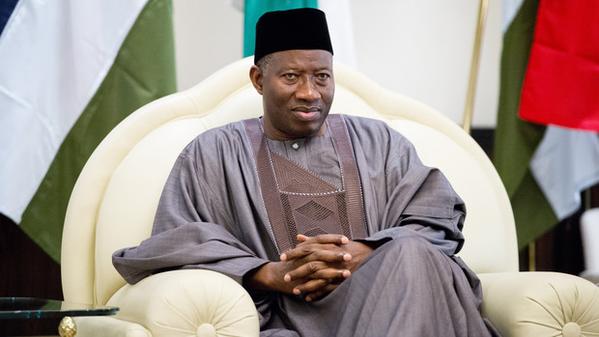Featured
President Jonathan Rejects 1999 Constitution Amendment

President Goodluck Jonathan has rejected amendments made by the national assembly to the 1999 constitution, citing 12 errors in the amendment bill.
The 1999 constitution amendment bill, which made provisions for independent candidature as well as the separation? of the office of the attorney-general of the federation from that of the minister of justice, was passed by the national assembly in February.
The bill also had a provision that stripped the pres?ident of his power to assent to amendments to the constitution.
In a letter to David Mark?, senate president, and Aminu Tambuwal, speaker of the house of representatives, read on the floor of the senate, Jonathan stated that he was withholding his assent to the bill owing to the reason that it was against the provision of Section 9(3) of the constitution of the federal republic of Nigeria.
The president outlined errors inherent in the bill thus: “Non-compliance with the threshold specified in Section 9(3) of the 1999 Constitution on amendments; “Alteration to constitution cannot be valid with mere voice votes unless supported by the votes of not less than four-fifths majority all members of national assembly and two-thirds of all the 36 state houses of assembly; “Right to free basic education and primary and maternal care services imposed on private institutions; “Flagrant violation of the doctrine of separation of powers; “Unjustified whittling down of the Executive powers of the Federation vested in the President by virtue of Section 5(1) of the 1999 Constitution; “Thirty days allowed for assent of the President; and “Limiting expenditure in default of appropriation from six months to three months.”
The others are creation of the office of accountant-general of the federation distinct from the accountant-general of the federal government; empowering National Economic Council to appoint the accountant-general of the federation instead of the president; allowing NJC to now appoint the attorney-general of the federation rather than the president; and unwittingly whittling down the discretionary powers of the attorney-general of the federation.
“In view of the foregoing and the absence of credible evidence that the Constitution of the Federal Republic of Nigeria (Fourth Alteration) Act 2015 satisfied the strict requirements of Section 9(3) of the 1999 Constitution, it will be unconstitutional for me to assent to it,” he said.
“I therefore withhold my assent and accordingly remit Constitution of the Federal Republic of Nigeria (Fourth Alteration) Act 2015 to the Senate/House of Representatives of the Federal Republic of Nigeria.”
Reacting to the president’s letter, Abubakar Sadiq Yar’adua, who represents Katsina central, raised a point of order,? urging the senate to discuss the letter because of the “weighty issues” it threw up.
However, Mark declined the request on the grounds that members had not been served copies of the letter. The senate committee on constitutional amendment will hold a two-day retreat to discuss the issues raised by the president as regards the constitutional amendment bill 2015.






